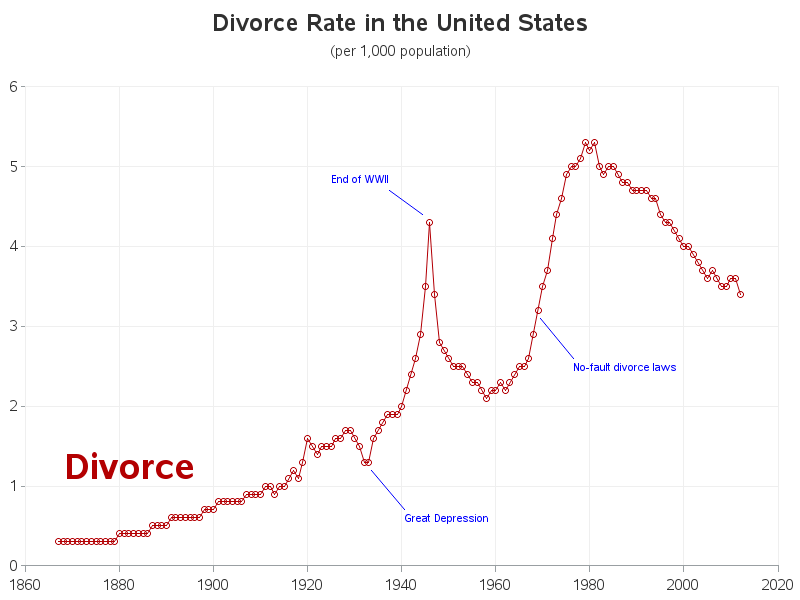Most couples have a 50 percent chance of getting divorced, and marriages after the first are even more likely to break up.
When people get married, they usually aren't thinking about their potential for divorce or the need for marriage counseling in the future. But maybe they should spend less time thinking about their wedding vows and more time considering what they will do when things get rocky in the future.
This is why marriage counseling is something that couples should consider seriously.
Premarital counseling helps you to foresee the relationship's future.
Marriage counseling can actually begin before the wedding. Some churches may require marriage preparation classes that include premarital counseling as a condition of performing the ceremony.
This counseling might include talking about the couple's individual family histories and the family they plan to build together, including the possibility of children, whether they will be raised in the church and how you might deal with conflict.
You can also go to a marriage or family counselor with your intended for premarital counseling, which should help you to start your marriage with a clean slate.
It can be a way to clear up any resentment or fear of marriage and give you a safe place to talk about things like if, when and how many children you want, how you might deal with money issues or other stressors on your relationship and to make sure you have similar values and goals for your relationship, your family and your life together.
Taking the time to do premarital counseling also sets you up to be more willing to engage in marriage counseling later on if you should need it.
It isn't just about fixing things, but building stronger roots.
The most common reasons couples choose to go to marriage counseling include lack of communication within the relationship, lack of emotional support or engagement and worries that they might be headed toward divorce.
Other issues that often send couples to therapy include fighting or specific relationship issues like infidelity.
Other people simply want to make their marriages stronger and look to professionals to help.
Before trying a counseling, be clear about what you want from it.
Most couples engage in marriage counseling after issues have been simmering for months, or even years, and the longer you wait to seek help the harder it is to work through the issues. Some experts say the average couple waits six years longer than they should to start counseling.
Know what you want from counseling from the beginning. Are you and your partner all in, fully committed to saving the marriage, no matter how much work it takes? Or are one or both of you pretty sure you want to break up? Knowing the answer will help define what a success looks like, but either way, you should maintain an open mind about the process.
Learn all you can about the counselor you are going to see. A license is a baseline, but what kind of training do they have in marriage counseling? What's their success rate at keeping marriages together? What is their style? Do you feel comfortable spilling intimate details of your life to them? Take the time to find someone who feels right to you both.
Research and find what's best for you and your partner is a must.
Now that you understand that marriage counseling can be so important to a marriage, you maybe thinking about how it's really like and whether there're things you should take good care of before trying it. Let's take a look at some of the things you should know before going to a marriage counseling.
What marriage counseling is like?
Some counselors will see each person in the couple separately, then bring them together for sessions where they can work through issues as a group. Meeting together or separately can sometimes lead to resentment because a member of the couple might feel their partner is getting more attention or that the counselor is taking their side.
A popular and effective form of couple's counseling is Emotionally Focused Therapy, or EFT. The idea behind this approach is that emotional responses are tied to our individual needs, and that changing emotions can lead to changes in attitude and approach within a couple.
The aim is to rebuild the attachment bond by focusing on the emotional needs of each partner and changing their interactions based on the other person's needs. The EFT process involves stages that take a varying amount of time to work though, depending on the issues the couple has.
How much does it cost usually?
For 90% of professional marriage counselors, one session equals one hour. Couples are usually recommended to have one weekly session of counseling for at least 12 weeks.
Most marriage counselors charge between $75 and $150 an hour on average.[1]
Marriage counseling doesn't guarantee a happily-ever-after marriage, but it does improve relationships.
Research into the effects of counseling find that most people who have been through couple's therapy are satisfied with the result. The American Association of Marriage and Family Therapists has found that 98% of people surveyed said they received good or excellent therapy, while 97% said they got the help they needed.
That doesn't mean all those couples stayed together, of course. About a quarter of couples that receive counseling will get divorced within two years, and about 38% will break up within four years.
But going to marriage counseling can be just the thing to turn a troubled relationship around, and is certainly better than not trying to fix things that aren't working in a relationship.
Chart credit: The Single Father's Guide
Featured photo credit: Flaticon via flaticon.com
Reference
| [1] | ^ | Husband Help Haven: What is the Average Cost of Marriage Counseling? |













































